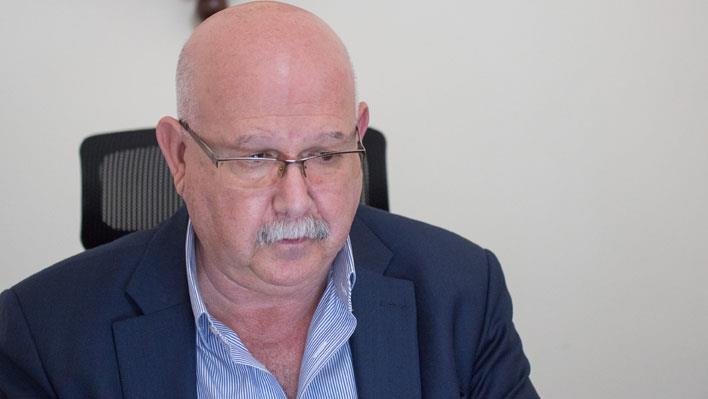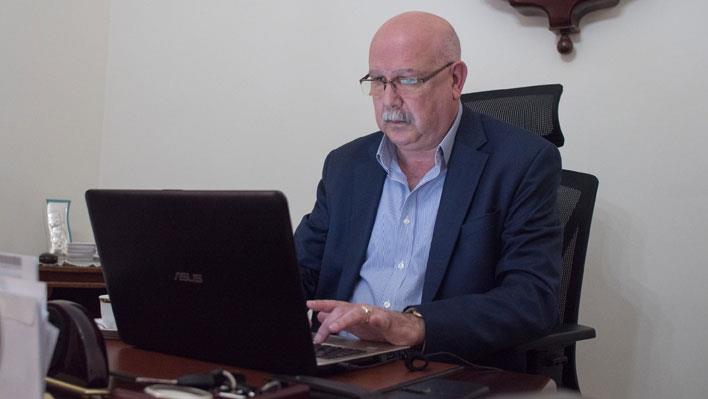The idea of making it mandatory to join a union goes against the fundamental rights of workers, former UHM Secretary General Gejtu Vella told Kevin Schembri Orland of The Malta Independent.
Recently a proposal was made by the General Workers Union, to discuss the idea of making it mandatory for employees to join a union of their choice. Vella, during an interview with this newsroom, explained why he is against such a proposal.
“Protecting workers is a good thing, but making a blanket statement, saying that all workers must join a union would breach the fundamental right of those workers who, for some reason or other, would not want to join a union of their choice, and that is wrong,” he explains.
He also spoke about pensions, and how Malta needs to find a solution so that pensioners will have an adequate living during their retirement years. He states that second pillar pensions are the way forward, which would be in place together with the current pension system.
Vella was also asked about the foreign workers situation, to which he stresses that there was no long-term plan, and spoke about the effects on the rental and property markets.
He also discussed the construction industry, and how he fears that if Malta keeps on building up, Malta’s tourism industry would ultimately suffer, and how eventually the construction industry would need to slow down which could leave certain negative effects.

What is your opinion on the proposal to make it a requirement for every worker to join a union of their choice?
While this could sound like a good thing, one must be careful not to trivialise matters. The proposal as is goes against the rights for a person to choose whether to join a union or not. Malta ratified an International Labour Organisation Convention in 1965, soon after becoming independent, regarding the freedom of association and protection of the right to organise convention.
This is a right for the workers to decide themselves whether to join a union or not. This is an important right.
Protecting workers is good, but making a blanket statement saying that all workers must join a union would breach the fundamental right of those workers who, for some reason or other, would not want to join a union of their choice. That is wrong.
There are fears that, if a workplace is dominated by one union which an employee does not like for any particular reason, then s/he would have to join that union regardless. What do you think would happen?
No. In the event that there is one particular union which enjoys the majority, then that particular union is the bargaining agent and negotiates on behalf of all employees. However, if an employee wants to join another union, s/he is still entitled to join a union of his/her choice. Simple as that. That should remain his or her right.
Saying that all employees must be in a union is wrong and I’m completely against it. Having said that, unions must be encouraged to undertake campaigns for membership amongst workers.
In real terms, what could the repercussions be?
Legally, in my opinion, an employee may take an employer and/or a trade union to court to seek redress on grounds that the worker’s fundamental rights have been breached.
Government has two roles, one as an employer who employs thousands of workers and secondly as the model employer.
As the model employer, government should lead by example. Ideally, when an employee joins the public sector, the worker should be encouraged to join a union of his/her choice and no obstacles should be created neither for the worker nor for the union opted for. If one looks at the recent past, there were occasions where government, the model employer, did not help employees join a union but created unnecessary hurdles. That was and is still wrong today. This happens also in the private sector, and this is not acceptable and should be addressed.
The legal repercussions on an employer when an employee is not allowed to join a union are minimal as an employee would need to prove this beyond doubt. This is not easy. In addition, one has to add the financial burden that this would have on the employee. The competent authorities need to beef up the relevant parts of the law. Many times, where an employee who is in this particular circumstance, urging his co-workers to join a union, the employer would come down hard on him like a tonne of bricks, firing him, and it would be very hard for the employee to prove it.

You’ve been out of the union for seven years. What are the main issues for the unions?
The main challenge for the trade union movement is that unions need to campaign to foster solidarity among workers and campaign for workers education. Individualism is growing in our society, where someone doesn’t care about anyone else.
The word solidarity is, unfortunately, dying in our society. I fear that social media and programmes on the national broadcaster are destroying the term solidarity. Solidarity is a right. One doesn’t do charity with someone who is sick, that is not solidarity. Solidarity is a right. One has to help someone sick by right.
If an earthquake happens abroad for example, and we help them, then that is what charity is.
We collect funds for those suffering from cancer. It is a nice thing, but the time has come to start making certain definitions. We collect funds for the research of the illness not for those who are sick. For those who are sick, funds should be made available from public coffers and not from monies collected by the Community Chest Fund much as they are well meaning.
Can you elaborate?
Society is viewing solidarity as charity. We are easing our conscience by collecting millions. But in reality, solidarity should go further than this, and there is a greater responsibility.
I think that the monetary figure has became bigger than the problem itself. Collecting more money each year has become an end itself. We have changed the definition of solidarity and we no longer understand what the term solidarity truly means. We need to sit down, as a society, and analyse what it solidarity really means.
Malta’s economy is doing well, but this has brought about certain issues. What is your opinion on the influx of foreign workers?
The economy is growing quickly, and naturally there is always a downside. The downside is that there is an influx of foreign workers to Malta when there is no strategic plan in place as to how many are coming. Normally, a tight labour market results in a wage rise; this did not materialise despite full employment. As the number of foreign workers increased, wages remained stagnant if not decreased.
Employers, rather than increase wages opt to engage third country nationals with much lower wages. This has certainly pushed wages down even for Maltese workers.
Rent prices rose and now there are problems for even foreigners to find a place to live. What do you think about this situation and what solutions do you see?
Foreign workers were brought here without a plan. Inevitably, property prices skyrocketed. Currently, the Maltese are finding problems to rent or purchase a property for a reasonable price. Foreigners are renting at high prices because they share rent among many, irrespective of the number of tenants the property was originally intended to house.
The solutions are not easy. How many flats can you build in our small country? Everywhere you look you see construction sites. How many more properties must be demolished to make way for new apartments?
One of Malta’s economic pillars is tourism, and I am worried as cranes are everywhere. Tourists visit Malta because of our culture, the sea, the sun... but what kind of image does this incessant construction leaves on the tourism sector? Maybe a ten-year plan for the tourism industry should help the major players plan ahead.
The Opposition says that government employs too many people while government says that they need educators, nurses etc. Do you think government is employing too many people?
No, government should employ nurses, doctors, teachers, police and others in the interest of all. However, I don’t think it is in the interest of the public sector for government to employ in low-skilled sectors. These services should be procured from the private sector through competitive contracts. Government should also refrain from employing persons in unwarranted positions of trust which directly impinge on the public coffers.
There was a small rise in pensions. You used to advocate for second pillar pensions...
Second pillar pensions should be introduced through part-payment. Prior to 1979 - which was when the current pensions structure was introduced - many private sector companies had their own pension schemes for their own employees. When the 1979 pensions came into effect, many companies redeemed their pensions schemes. Since then, pensions have not increased at the same rate as the cost of living, which has created an erosion in pensions. Pensions have become neither sustainable nor adequate.
We are increasingly faced with pensioners who either live in poverty or are at risk of poverty. With the pension schemes currently in force, today’s workers would inevitably need to supplement their pension with some other form of income.
With a booming economy, it is an opportunity not to be missed for the social partners, that is government, employers and trade unions, to engage into meaningful social dialogue about the second pillar. A sinking fund would need to be introduced for this purpose; however, such a fund should be monitored closely by the social partners and used solely for that intended, that is a second-pillar pension fund.
Some argue that only a few sectors are driving everything upwards, do you agree?
Yes.
Some argue there is a gap between some jobs and others when it comes to wage increase and if that’s the case, how do you deal with this situation?
That is a real situation and my concern is that there are three or four thriving sectors. At the moment, the gaming sector, financial services, the aviation maintenance sector and maritime services are doing well. The construction industry will continue to grow for a period of time; however, at some point this rate will slow down. Construction companies that would have resorted to banks to finance construction projects would find it hard to keep up with repayments.
If you had to give advice to the workers of today what would it be?
Buy an umbrella for a rainy day.